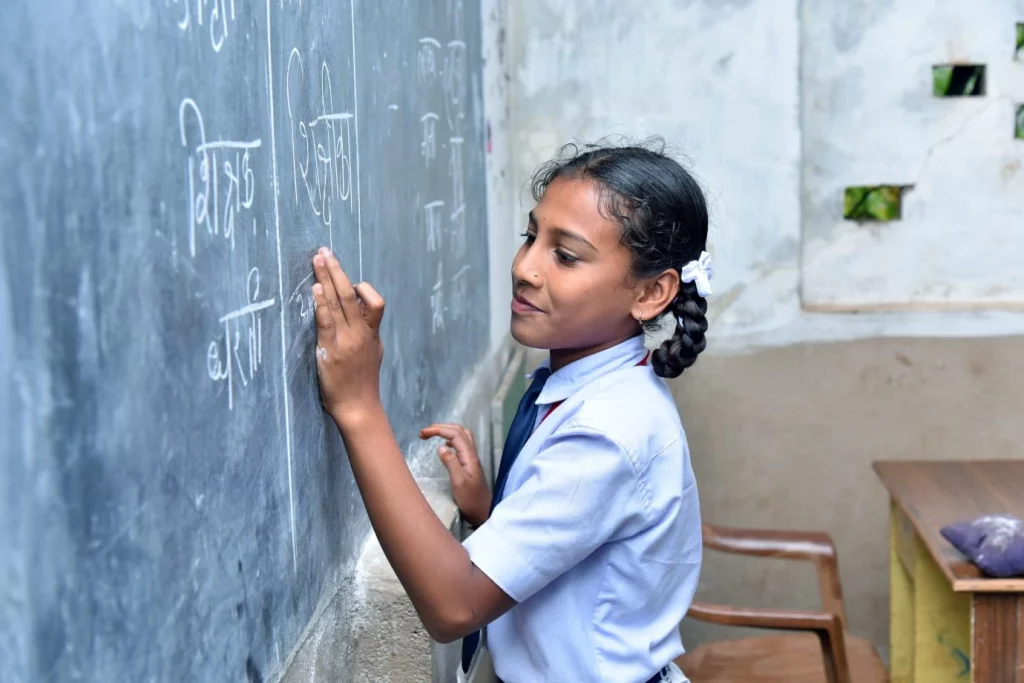The demand for life skills training in schools and universities has skyrocketed in this age of breakthroughs and limitless options. Today’s children are shaped to reach material success and celebrity. This concept is what tarnishes pupils’ character and integrity. As a result, we have a large number of teenagers who lack basic human traits such as gratitude and empathy.
The need to strike a balance between materialistic achievement and genuine inner tranquility should be stressed to students. Without it, the true meaning of life will be lost, and disorders such as sadness and anxiety will worsen.
Life skills training focuses on an often-overlooked aspect of a person’s nature. People must recognize the importance of educating pupils on the inside as well. Low self-esteem and confidence might lead to severe problems in the future. These days, students are scared to even voice questions in class.
As a result, the learning experience and outcome are poor. Unfortunately, we do not teach life skills to our youngsters in India. Due to this, they often face problems in the real world scenario. Training students in life skills such as self-esteem, anger control, stress management, and happiness is crucial. These abilities are put to the test once they begin their professional careers.
Communication Skills
The ability to communicate in a clear and compelling manner in front of others is one of the most crucial life skills that anyone can learn. Communication talents refer to a person’s ability to provide and receive various forms of information.
Skills of communication provide numerous benefits for the individual. These include increased comfort when formulating ideas and confidence in oneself. The ability to attract people to oneself is also an important aspect of this.
People who are good at communicating with people can be innovative in a variety of enterprises. These include the sale of various things, as well as communicating ideas and viewpoints to influence others.
Communication skills, like all other life skills, require ongoing training.
Self-Awareness Skills
The readiness to be mindful of one’s own impulses, correctly assess one’s own assessment, and respond appropriately to diverse social circumstances is known as self-awareness.
This skill enables a person to comprehend his own feelings and those of others. A person who is self-aware can apply his expertise to make successful and sound judgments.
Problem-Solving Capabilities
Problem-solving abilities go beyond a person’s capacity to recognize and characterize a problem. They are also able to produce alternative approaches, evaluate and choose the best option, apply the chosen option, and resolve issues efficiently and quickly.
Training in Time Management
Time and tide don’t wait for anyone. An individual must be able to manage their time and put it to good use. It is difficult for a person to attain success in life without time management skills. Success requires a determined and disciplined plan.
Students often struggle to manage their time in today’s fast-paced society. They are unable to organize their belongings and plan their day. The most common cause of this problem is social networking sites, as students find it difficult to limit their screen time. As a result, they are stressed and anxious.
Students need to be taught how to prioritize tasks and distinguish between wasted and useful time during the day. This will result in increased production and results. Students who receive time management training will be able to create an orderly routine and stick to it. This instruction should begin in elementary school, as this is the best age to instill positive behaviour.
Thinking Capabilities
Absorbing information, making sense of events, building relationships, solving issues, and developing new ideas are all referred to as thinking skills. It is worth mentioning that thinking isn’t a depiction of one thing only. Rather it is the application of existing knowledge about one thing to create something new. This can be referred to as innovation.
There are four different sorts of thinking abilities:
Analytical Thinking Skills
Analytical thinking, also known as convergent thinking, is a form of visual thinking. It allows one to break down big problems into smaller, more manageable chunks and solve problems effectively.
Divergent Thinking Skills
This is a problem-solving technique that entails examining a wide range of alternative solutions in order to find one that works.
Divergent thought is frequently free-flowing, spontaneous, and non-linear in nature.
As a result, convergent thinking, which relies on focusing on a small number of options rather than offering various solutions, clashes with this.
Creative Thinking Skills
The power to make something innovative that makes an individual recognize the gaps in the missing pieces, look at things in a new way and scour for indicators and observations to fill these shortfalls and make the required modifications is known as creative thinking skills.
The ability to think creatively is built on imagination. This necessitates amazing imaginative abilities apart from reality and logical reasoning.
Critical Thinking Skills
The capacity to think clearly and sensibly about what to consider and do is referred to as critical thinking.
The ability to separate truth from fiction, personal views, and conviction, and the individual’s ability to predict, are all critical thinking skills.
Conclusion
Life skills are based on a big part of our experiences. How we might pass on this knowledge to future generations in order to study, communicate, and add to their knowledge are also part of this.
However, we are currently seeing rapid changes and a tremendous revolution in the sphere of science and technology. This is widening the gap among parents and children, particularly in terms of learning and passing on experience, and maximizing advantage.
It is essential for parents to understand the pressures that children and teenagers encounter. They should not place further pressure on them and should not be startled by their actions. Instead, they should grasp the technological advancements and the modern era in which they live and interact.
They should be aware of the demands and obstacles that the children face and work together to find answers.










